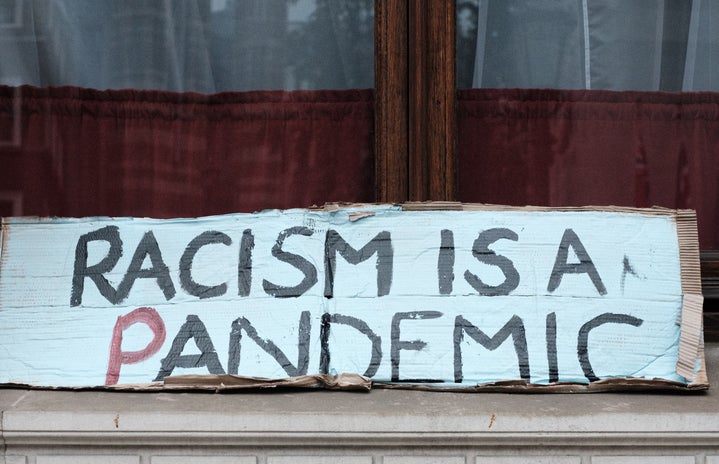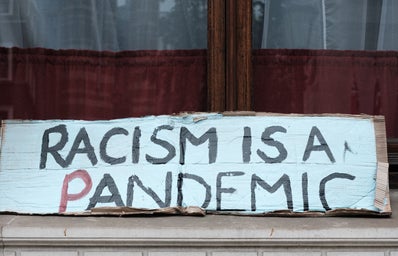I am sure everyone’s Instagram page has been filled with consistently horrible news over the past few weeks. Recent attacks on Asian people have come under the spotlight and left the entire Asian-American community furious and overwhelmed. With an 84-year-old Thai man being shoved to the ground in January, and a 91-year-old man getting violently attacked at Chinatown while walking two days later, followed by the tragic mass shootings of six Asian women at massage parlors in the Atlanta area on March 16th, there has been an international surge of anti-Asian violence and hate crimes in the midst of the COVID-19 pandemic.
The enormous spike in the number of anti-Asian incidents over the past year, and the recent influx of attention on social media led to a discussion during my dance rehearsal two weeks ago. The topic of Asian-Hate crime was brought up, and throughout the conversation the question of whether it is acceptable to not post anything on social media was emphasized. Social media platforms are a great way to share, educate, and be vocal about our opinions and past experiences. It is due to the different social media platforms that we are able to advocate and let our voices be heard by others. But amongst everyone who is active on social media, there is a group of people who choose to resist silently by not posting anything on their social media accounts. Individuals like this are often questioned by others as if they are ignorant to what is currently happening, but since when does reposting on an Instagram story a way of determining an individual’s standpoint on anything? Many of us, including myself, often feel the need and pressure to follow what everyone else is doing, and if we fail to do so, a sense of guilt creeps up and embeds itself in our heads. During this difficult time, a lot of us have been overwhelmed by the constant inflow of information, and in response to all of this horrifying news, everyone reacts differently and processes information in their own way. Being silent on social media might seem ignorant at first, but those who choose to resist silently may be donating to non-profit organizations such as Stop AAPI Hate, and standing up for their friends that were made fun of offline behind screens that do not mean anything in reality.
There is no one right way to show support, and we should not be judged based on our social media activity. Let’s consider this, would you rather someone to be constantly sharing and posting on their Instagram story but is too afraid to stand up with their AAPI friends, or someone who is actively educating others about this topic in real life and not posting on social media? Real actions are more powerful than the identical posts circulating around on different social media platforms. Silent resistance is preferred by many of us because we believe the influence we make with small gestures of activism in our daily life is greater than the few followers on our Instagram page.
Silent resistance is by no means equivalent to complete silence, however, and man may take it in such a way. Behind all mass change is the accumulation of small actions by each one of us. It could be as minor as doing your own research to educate yourself, treating others the same way you want to be treated, listening to what others have to say, sharing your own story, asking questions, and the list goes on… Like what Eric Nam has said in his recent article, “This is in no way a comprehensive list and it will be ever-changing, but it’s a place to start.” There are many other great resources on the internet that are way more detailed than what I have listed above, so utilize them to empower and support the Asian community in ways you feel comfortable.
Every form of positive resistance to Asian-Hate Crime has its own purpose and needs to be respected. All effort and commitment is required during the process of creating change in our society, so before you start making a comment the next time you see someone’s blank Instagram story, think about all the things they could be doing in real life, and how you could further contribute to stop this Anti-Asian racism marathon.


